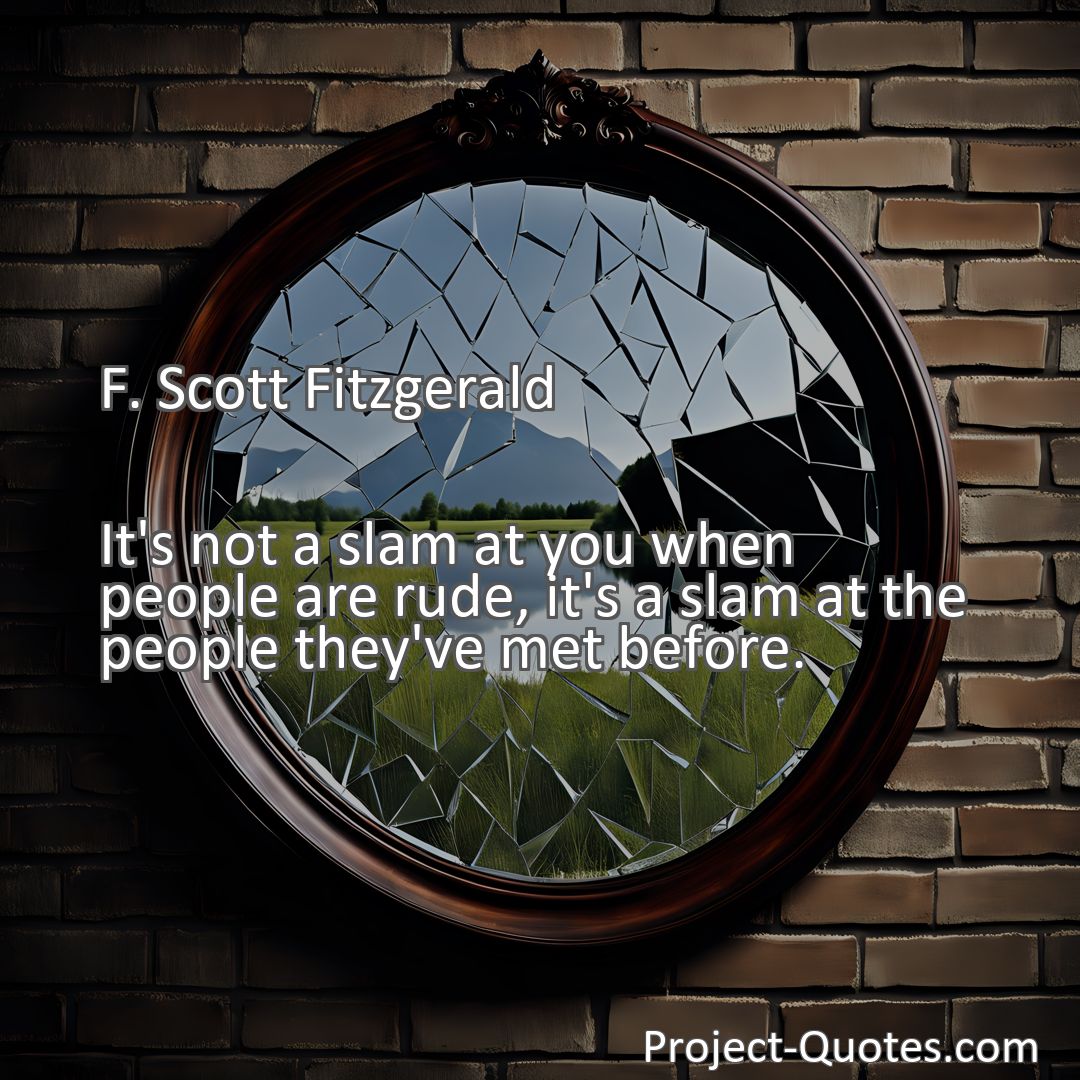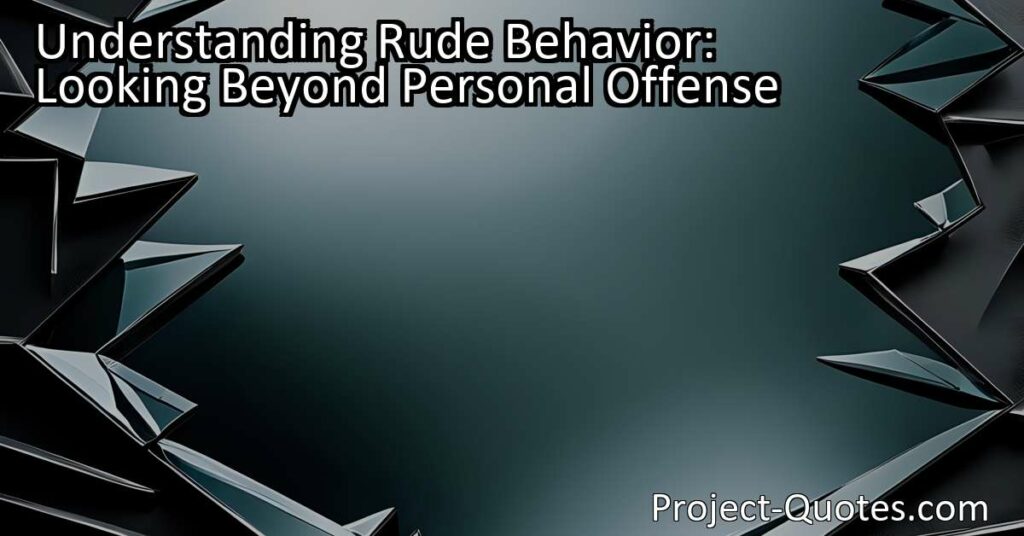It’s not a slam at you when people are rude, it’s a slam at the people they’ve met before.
F. Scott Fitzgerald
Engaging When someone consistently exhibits rude behavior despite our efforts to be kind, it’s important to understand that their actions are not about us personally. Their rudeness is often a reflection of past negative experiences and personal struggles. By responding with empathy, setting boundaries, and choosing not to internalize their negativity, we can contribute to breaking the cycle of rudeness and creating a more compassionate world.
Table of Contents
Meaning of Quote – It’s not a slam at you when people are rude, it’s a slam at the people they’ve met before.
Have you ever encountered someone who was rude to you for no apparent reason? It can be quite bewildering, can’t it? But here’s something to consider: maybe their rudeness has nothing to do with you personally. In fact, as F. Scott Fitzgerald suggested, it might be a reflection of the negative experiences they’ve had with others in the past.
“It’s not a slam at you when people are rude, it’s a slam at the people they’ve met before.” Such a profound statement, isn’t it? Fitzgerald, a renowned American author who wrote timeless classics like “The Great Gatsby,” encourages us to look beyond the surface when faced with rude behavior. Rather than taking it personally, we should try to understand that there might be underlying reasons for their attitude.
One of the first things to recognize is that people’s actions are often shaped by their past experiences. Imagine someone who has been mistreated or hurt in the past, repeatedly encountering individuals who have let them down or betrayed their trust. It’s no wonder they might develop a defensive or guarded demeanor. By being rude, they are attempting to protect themselves from potential harm, even if it means unintentionally hurting others in the process.
Think about it this way: when we encounter someone who is kind and respectful, we tend to respond in a similar manner. On the other hand, if we encounter someone who is ill-mannered or dismissive, it’s only natural to mirror their behavior or feel hurt and offended. Fitzgerald’s quote reminds us to break this cycle by recognizing that rudeness often stems from personal experiences, rather than being a direct reflection of who we are as individuals.
Furthermore, it’s essential to consider that we never truly know what someone else is going through. The person who displays rudeness might be facing significant challenges in their personal lives be it struggles with mental health, financial difficulties, or relationship issues. Instead of labeling them as rude, we can practice empathy and understanding. Choosing to respond with kindness, even when faced with their rudeness, can potentially break down their defensive barriers and demonstrate that not everyone they encounter will treat them poorly.
It’s important to note that this perspective doesn’t mean condoning or accepting rude behavior. Instead, it empowers us to respond with compassion, diffuse tense situations, and perhaps influence others to question their own actions. By refusing to meet rudeness with rudeness, we can challenge the negativity that has been projected onto us and endeavor to create a more harmonious environment.
In addition to this, remember that we all have bad days. Life can be tough and overwhelming at times, and our emotions can sometimes get the best of us. The same applies to others. Reflecting on Fitzgerald’s words reminds us that people’s rudeness isn’t always a direct attack, but rather a manifestation of their own struggles and frustrations. By refusing to internalize their negativity, we can maintain our own well-being and not allow their behavior to bring us down.
It’s also worth mentioning the importance of personal boundaries. While it’s admirable to respond to rudeness with kindness, it’s equally important to establish and enforce boundaries. There’s a difference between being understanding and accepting mistreatment. If someone consistently exhibits rude behavior despite your efforts to remain respectful, it may be necessary to distance yourself from that person.
When confronted with rudeness, it’s crucial to remember that we have control over our own reactions. We can choose to let it affect us negatively by taking it personally, or we can choose to rise above it. By recognizing that rudeness often stems from past experiences and personal struggles, we can cultivate empathy, respond with kindness, and contribute towards breaking the cycle of negativity.
In conclusion, F. Scott Fitzgerald’s quote serves as a poignant reminder that when people are rude, it’s often not about us. Their behavior reflects the encounters they’ve had in the past and the challenges they might be facing in the present. By approaching rudeness with empathy, understanding, and personal boundaries, we can create a more compassionate and harmonious world. So, the next time someone is rude to you, remember that it’s not a slam at you it’s a reflection of the people they’ve met before.
I hope this quote inspired image brings you hope and peace. Share it with someone who needs it today!


